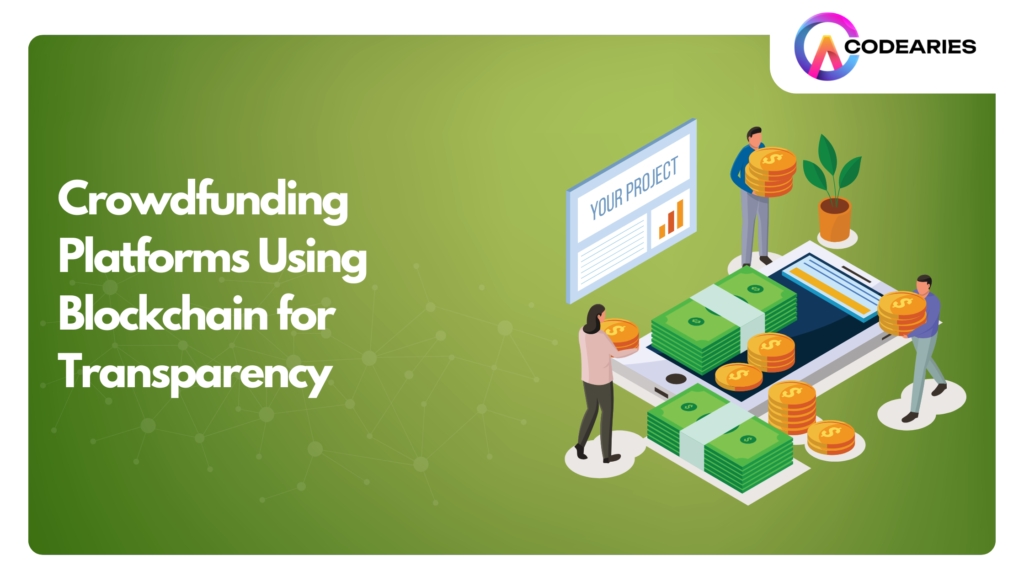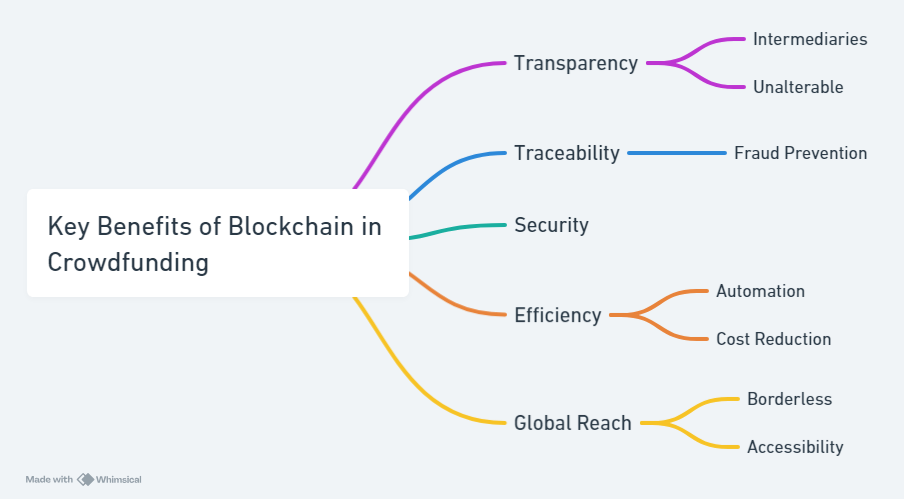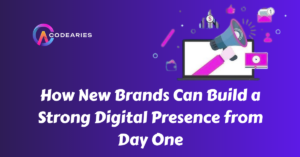Crowdfunding has become a popular method for raising capital for everything from startups to creative projects. This approach enables project creators to gather support from numerous backers, but it often raises concerns about transparency and the proper use of funds. Backers understandably worry about how project owners manage their contributions and whether they will fulfill their promises. Blockchain technology offers a revolutionary solution to these concerns, providing a transparent and secure platform for crowdfunding.
Blockchain is a decentralized digital ledger that records transactions across multiple computers, making it tamper-proof, transparent, and secure. This is especially useful in the crowdfunding space, where trust and accountability are crucial for both backers and creators.
Challenges in Traditional Crowdfunding
In traditional crowdfunding models, creators present their project on a platform, inviting contributions from supporters in exchange for rewards, perks, or equity. Popular platforms like Kickstarter and GoFundMe have made this process mainstream. However, they face several challenges:
- Fraud: Backers have limited control and insight into how their money is spent, leading to misuse of funds in some cases.
- Lack of transparency: Once a project receives funding, backers often lose visibility into its progress or the management of funds.
- Project failures and delays: Many projects face delays or fail to materialize, undermining trust in the crowdfunding model.
How Blockchain Transforms Crowdfunding
Blockchain addresses these challenges by providing a decentralized, transparent system that offers backers real-time visibility into how funds are being used. Here’s how it solves key issues:
- Decentralization: No single party controls the platform, reducing the risk of fraud or manipulation.
- Immutability: Once a transaction is recorded on the blockchain, it cannot be changed, ensuring that financial data is secure and trustworthy.
- Smart Contracts: These self-executing contracts release funds only when certain predefined conditions are met, ensuring that creators follow through on their promises. For example, funds could be released incrementally as milestones in the project are achieved.
Benefits of Blockchain in Crowdfunding
Blockchain introduces a new level of accountability and transparency, benefiting both creators and backers in several ways:
- Fraud prevention: With immutable records, backers can trust that the funds will be used as intended, reducing the risk of fraud.
- Automated fund distribution: Smart contracts ensure that money is only released when specific project goals are met, providing backers with confidence that their money is being well spent.
- Global accessibility: Blockchain allows crowdfunding campaigns to reach a global audience without the need for traditional banking systems, opening up opportunities for projects in underserved regions.
- Lower transaction fees: By cutting out intermediaries, blockchain reduces the fees traditionally associated with crowdfunding platforms.
Smart Contracts in Crowdfunding: A Transformative Force
Smart contracts—self-executing agreements with terms embedded in code—are reshaping the crowdfunding landscape. Here’s how they are driving innovation:Automation and Streamlining:
- Auto Payments: When funding goals are met, smart contracts automatically release funds to project creators, speeding up the process.
- No Middlemen: By removing the need for intermediaries, smart contracts lower costs and improve transaction efficiency.
Boosted Security:
- Cryptographic Protection: The cryptographic foundation of blockchain technology ensures secure transactions and protection of sensitive data.
- Reduced Risk: Smart contracts minimize counterparty risk by enforcing automatic fulfillment of agreements.
Global Access and Inclusivity:
- Borderless Crowdfunding: Blockchain-powered platforms can attract a global pool of backers, offering a wider reach for fundraising efforts.
- Lower Barriers: By simplifying processes, smart contracts open doors for small businesses and individuals to easily raise funds.
Innovative Models:
- Tokenized Crowdfunding: Through smart contracts, projects can issue tokens in exchange for contributions. These tokens might represent ownership or future benefits.
- Decentralized Governance: Using smart contracts, projects can set up Decentralized Autonomous Organizations (DAOs), enabling collective decision-making by token holders.
Case Studies: Blockchain-Enhanced Crowdfunding Platforms
Blockchain technology is transforming the crowdfunding landscape by improving transparency, security, and efficiency. Here are some unique case studies of platforms utilizing or exploring blockchain in crowdfunding:
Kickstarter
- Exploring Blockchain Integration: Although Kickstarter has not fully implemented blockchain, it has expressed interest in how blockchain can improve its platform. The company has considered leveraging the technology to verify user identities, track project milestones, and enhance accountability.
- Potential Impact: Integrating blockchain could significantly increase trust between backers and project creators, minimizing the risks of misuse of funds and fraud. Backers could have real-time access to project updates, providing enhanced transparency.
Indiegogo
- Blockchain-Based Campaigns: Indiegogo has been at the forefront of hosting blockchain-related projects, including cryptocurrency token offerings and blockchain tech initiatives. Its platform has supported a variety of campaigns that capitalize on the advantages of decentralized technologies.
- Benefits and Future Potential: By incorporating blockchain technology into more areas of its platform, Indiegogo could offer greater transparency to backers and provide a secure environment for creators. This would not only strengthen the platform’s credibility but also attract innovative blockchain-based startups and investors.
BnkToTheFuture
- Specialized in Blockchain Projects: BnkToTheFuture is a dedicated crowdfunding platform focused on blockchain and cryptocurrency ventures. It provides investors with opportunities to support the development of cutting-edge blockchain technologies through token sales and equity investments.
- Advantages: The platform’s niche focus ensures alignment with the interests of blockchain-focused investors. Its integration of decentralized technology enables efficient fund management and improved transparency between project developers and contributors.
Challenges and Considerations
While blockchain brings many advantages to crowdfunding, it is not without its challenges:
- Regulatory issues: The regulatory landscape for blockchain and cryptocurrency is still evolving, and crowdfunding platforms must navigate various legal frameworks across different countries.
- User adoption: Blockchain technology can be complex, and many potential users may be unfamiliar with its workings, limiting widespread adoption.
- Cryptocurrency volatility: Many blockchain-based platforms rely on cryptocurrencies, which can fluctuate in value, posing risks for both creators and backers.
The Future of Crowdfunding with Blockchain Technology
Blockchain is reshaping the crowdfunding landscape by enhancing transparency, efficiency, and security. Its decentralized and immutable features are empowering both project creators and investors to engage in a more trustworthy and streamlined crowdfunding process.
Blockchain-Based Crowdfunding Use Cases
- Tokenized Crowdfunding: Projects can issue tokens that represent equity or ownership, giving investors a direct stake in the venture’s success.
- Decentralized Autonomous Organizations (DAOs): Blockchain enables the formation of DAOs, where crowdfunding helps fund community-governed projects.
- Supply Chain Crowdfunding: Suppliers can use blockchain to raise funds for production, with all transactions tracked transparently across the supply chain.
- Micro-investing: Blockchain facilitates micro-investments, allowing individuals to contribute small amounts to various projects, diversifying their investment portfolios.
Conclusion
Blockchain is transforming crowdfunding by addressing its most significant pain points—transparency, fraud prevention, and accountability. By enabling real-time tracking of funds and ensuring that money is only spent as intended, blockchain has the potential to create a more secure, efficient, and globally accessible crowdfunding ecosystem. As the technology evolves and gains wider adoption, blockchain-powered crowdfunding could become the new standard for raising capital.
FAQs
What is a smart contract and blockchain for crowdfunding platforms?
A smart contract is a self-executing code stored on the blockchain that automatically enforces agreements between parties when predefined conditions are met. Smart contracts on crowdfunding platforms release funds to project creators only after they achieve specific milestones, reducing the risk of fraud. Blockchain creates a transparent, immutable ledger, where a decentralized network records and verifies all transactions, ensuring accountability and trust between backers and creators.
What is blockchain fundraising?
Blockchain fundraising involves raising capital through decentralized platforms, often using cryptocurrencies or tokens. Projects can launch token sales or Initial Coin Offerings (ICOs) to attract investors, who contribute funds in exchange for digital tokens or a stake in the venture. Blockchain ensures transparency in how funds are raised, allocated, and tracked, offering a clear, auditable record of all contributions.
Does blockchain mean higher transparency in the financial sector?
Yes, blockchain significantly increases transparency in the financial sector. It records all transactions in a public, immutable ledger that anyone can view but cannot alter. This reduces the likelihood of fraud, mismanagement, or corruption. Financial institutions and users alike can benefit from improved auditability, accountability, and trust through blockchain technology.
How do you raise money on blockchain?
To raise money on blockchain, project creators typically use methods like Initial Coin Offerings (ICOs) or Security Token Offerings (STOs), where they issue tokens that represent a share in the project or offer future utility. Investors buy these tokens with cryptocurrencies, and smart contracts govern the release of funds. Blockchain platforms enable secure, transparent fundraising without relying on intermediaries like banks, streamlining the process and reducing costs.








